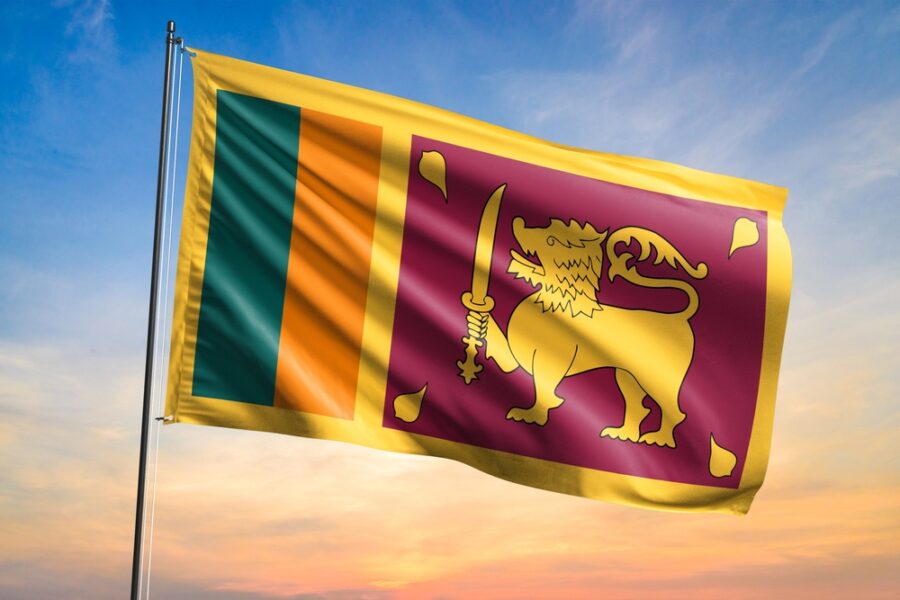Sri Lanka to establish Gambling Regulatory Authority by June 2026

Sri Lanka’s new gambling regulator, the Gambling Regulatory Authority, is expected to be established and fully operational by 20 June 2026.
Sri Lanka’s Chair of the Committee on Public Finance Dr Harda de Silva said the timeline followed recommendations from the Committee on Public Finance to the Treasury and Inland Revenue Department.
The Committee advised accelerating the process in accordance with Financial Action Task Force standards on anti-money laundering and counter-terrorism financing.
Dr de Silva said, “The legislation to create the authority is already in place. What we now need are the detailed regulations that will make it operational.”
He added that new regulations would define licensing rules, operational conditions, penalties, and enforcement measures to protect tax revenue and consumers. The Treasury is seeking international consultancy support, focusing on examples such as Singapore’s model.
Online gambling was identified as a significant gap, with officials estimating that 60–70% of gaming activity occurs on foreign websites. He added, “Online gambling has become a major grey area. This legal vacuum poses both financial and social risks.”
The authority has a seven-member board that includes four ex officio members from the Treasury, Inland Revenue, Financial Intelligence Unit, and Police, alongside three ministerial appointees.
Once the board is constituted, the law’s commencement date will be published, allowing the Gambling Regulatory Authority to begin operations.
In September, Sri Lanka’s Attorney General gave clearance to the Cabinet’s approved plans to raise the country’s betting tax and double the entry fees for locals at casinos.
Abi Bray brings strong researching skills to the forefront of all of her writing, whether it’s the newest slots, industry trends or the ever changing legislation across the U.S, Asia and Australia, she maintains a keen eye for detail and a passion for reporting.
Verticals:
Sectors:
Topics:
Dig Deeper
The Backstory
Why a regulator, why now
Sri Lanka’s plan to stand up a Gambling Regulatory Authority by June 2026 caps years of pressure to bring fast-growing, lightly policed betting and online play under a single rulebook. The move follows Cabinet and parliamentary steps to formalize oversight, expand tax collection and confront the rise of offshore operators serving Sri Lankan customers without local licenses or consumer safeguards. Lawmakers and fiscal officials have framed the regulator as central to closing enforcement gaps, protecting revenue and aligning with anti-money-laundering standards. The stakes are not just fiscal. Regulators want clearer tools to curb social harms tied to online wagering and to assert jurisdiction over new hubs such as Colombo Port City, where policymakers fear a regulatory vacuum could harden if rules lag the market.
The legislative track accelerated this year, building on earlier Cabinet directives that set the stage for a comprehensive framework. The blueprint anticipates licensing rules, conduct standards and penalties spanning both physical venues and internet platforms, with the regulator empowered to set conditions and coordinate with financial intelligence and police authorities. That architecture reflects broader regional and global shifts, where governments are moving from fragmented oversight to purpose-built agencies with mandates that can adapt to digital business models.
From draft bill to mandate
The current push traces back to Cabinet’s decision to advance a Gambling Sports Regularization Act and to publish it in the Government Gazette for parliamentary review. In a sign of scope and intent, officials cast the proposed body as the country’s sole national regulator, with remit over offshore gambling on ships, activities within Colombo Port City and online platforms accessible to Sri Lankans. That step put momentum behind the effort and acknowledged the urgent need to police cross-border operators. The Cabinet’s move is detailed in reporting on Sri Lanka moving closer to an online gambling authority, which underscores the plan to enforce compliance, strengthen revenue collection and tackle online harms once Parliament gives its nod.
The design deliberately pulls policy levers beyond licensing. By situating ex officio seats for the Treasury, Inland Revenue, the Financial Intelligence Unit and Police on the new authority’s board, policymakers are signaling that tax compliance, payments monitoring and law enforcement will be embedded in day-to-day supervision. That integration is meant to streamline data-sharing and accelerate action against unlicensed sites or operators that flout consumer protection norms.
Tax changes set the tone
Fiscal policy has served as both a catalyst and a test case for the coming regime. In September, the Cabinet backed amendments to the Betting and Gaming Levy Act, seeking to lift the levy on gross gaming turnover from 15% to 18% and to double the entry fee for locals at casinos to $100. The push, cleared by the Attorney General, reflects the government’s need to stabilize public finances and to ensure operators contribute in line with market growth. The proposal and its path through the Cabinet are captured in coverage of Sri Lanka’s gambling tax amendments, which outlines how lawmakers aim to capture both annual levies and gross collection charges within a modernized framework.
Those tax changes preview how the future regulator might approach compliance: set clear rates, tie them to measurable activity and enforce them across channels where play actually occurs. With most online activity currently on foreign websites, the regulator’s ability to license, monitor and compel remittance from digital operators could determine whether the new levy structure achieves its targets. The Cabinet’s tax drive and the regulator’s mandate are thus inseparable—tax rules define the stakes, while the authority’s enforcement powers make them real.
Regional roadmaps and cautionary tales
Sri Lanka is not building in a vacuum. Regulators in the Philippines have recently tightened the net around the online ecosystem by requiring accreditation for gaming affiliates and support service providers that power licensed operators. The new Philippine framework reclassifies B2B entities, mandates nonrefundable fees and performance deposits, and routes oversight through the electronic gaming licensing department. That step-by-step approach, described in reporting on PAGCOR’s framework for affiliates, shows how authorities can pull third-party vendors into the compliance perimeter and raise standards without stifling licensed growth.
Cross-border collaboration is another emerging tool. The United Arab Emirates’ new regulator inked an information-sharing pact with New Jersey’s Division of Gaming Enforcement, targeting cybersecurity, consumer protection and regulatory benchmarking. As the UAE builds from a nascent legal framework, it is tapping into New Jersey’s decade-plus of online casino oversight to speed adoption of best practices. That cooperative model, detailed in coverage of the New Jersey-UAE regulatory partnership, suggests Sri Lanka could benefit from similar partnerships as it writes secondary rules, especially for online monitoring and responsible gaming.
At the same time, U.S. debates show how policy can stall when interests diverge. Virginia shelved its online casino bill until 2026 after lawmakers opted for further study, despite a framework that envisioned up to 15 sites and a 15% tax on gross gaming revenue. Industry pushback from some land-based operators underscored concerns that online channels might cannibalize physical venues. The delay, outlined in reporting on Virginia’s online casino bill, is a reminder that stakeholder alignment—and credible evidence on economic impacts—can determine the pace and shape of legalization.
Online gray areas drive urgency
Sri Lankan officials have emphasized that online betting is the largest blind spot. Estimates that a majority of gambling activity flows through foreign websites highlight the compliance and consumer risks. Without licensing and payment controls, authorities struggle to track volumes, enforce age and identity checks, or capture taxes. The pending regulator is designed to bring that activity onshore—by issuing licenses, imposing technology and reporting standards, and using financial intelligence tools to identify and block unlicensed flows.
The Cabinet’s earlier action to publish the draft bill and prepare it for Parliament, as noted in coverage of the draft authority proposal, suggests secondary regulations will need to address vendor accreditation, anti-money-laundering reporting, dispute resolution and advertising rules tuned to digital channels. Singapore’s model is often cited for its strict controls and centralized oversight; tailoring those principles to Sri Lanka’s market will require local testing and industry input.
What to watch next
The path to a functioning regulator runs through three milestones: constituting the board, publishing the law’s commencement date and issuing detailed regulations that cover licensing criteria, operational standards and penalties. Watch for how the rulebook treats offshore platforms that want to target Sri Lankan customers, how it sets data and cybersecurity requirements, and how it phases in compliance to avoid service disruptions while curbing illegal play.
Revenue will be a key yardstick. The Cabinet’s tax amendments create a clearer funnel for collections, but only a licensing and enforcement regime can move online turnover into the taxable base. Experiences in the Philippines, the UAE’s information-sharing strategy and Virginia’s pause each offer lessons on sequencing, stakeholder management and the trade-offs between growth and guardrails. Sri Lanka’s challenge over the next year is to lock in a credible framework that channels digital demand into regulated supply, protects consumers and proves the regulator can do what the tax code now expects.







